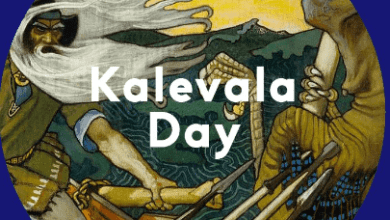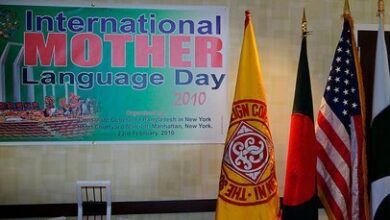Dive into the remarkable story of Saudi Arabia’s Founding Day and its enduring impact on the nation’s identity and progress.
Read also:
QUICK FACTS:
- Date: February 22th
- Main Components: Celebrating the enthronement of Muhammad bin Saud as the emir of Diriyah in 1727
- Popularity: A new public holiday established in 2022 by King Salman
- Pairings: Cultural events, exhibitions, musicals, fireworks, etc.
- Variations: Different regions and cities may have different festivities and themes
Introduction
The Kingdom of Saudi Arabia is one of the most influential and powerful countries in the Middle East and the world. It is the birthplace of Islam, the custodian of the two holy mosques in Makkah and Madinah, and the largest exporter of oil. It is also a country with a rich and diverse history, culture, and heritage that spans over three centuries.
The founding day of Saudi Arabia, celebrated annually on February 22, is a new public holiday that commemorates the foundation of the first Saudi state in the Arabian Peninsula. The holiday was established in 2022 by King Salman bin Abdulaziz Al Saud, who issued a royal decree to honor the deep historical, civilizational, and cultural roots of the kingdom.
The first Saudi state, also known as the Emirate of Diriyah, was founded by Muhammad bin Saud, the ancestor of the al-Saud family, in 1727. He formed an alliance with Muhammad bin Abdul Wahhab, a reformist Sunni Islamic scholar, who preached the revival of theological monotheism and the elimination of perceived deviant practices among Muslims. Together, they launched a movement that expanded their territory and influence across the Arabian Peninsula, and laid the foundation for the second and third Saudi states that followed.
The founding day of Saudi Arabia is not to be confused with the national day of Saudi Arabia, which is celebrated on September 23. The national day marks the unification of the kingdom by King Abdulaziz Al Saud in 1932, after he defeated the rival Rashidi dynasty and consolidated his rule over the region. The national day is a celebration of the modern achievements and developments of the kingdom, while the founding day is a celebration of the historical origins and legacy of the kingdom.
The main argument or thesis of this essay is to explore the history, ideology, and achievements of the founding of the kingdom of Saudi Arabia, and to analyze its significance and impact on the region and the world. The essay will be divided into three main sections, corresponding to the three Saudi states that emerged from the original movement of Muhammad bin Saud and Muhammad bin Abdul Wahhab. The essay will also discuss the challenges and opportunities faced by the kingdom in the contemporary era, and provide some recommendations or suggestions for further research or action.
Related: Crime Victims Day In Europe 2023
The First Saudi State (1744-1818)
The first Saudi state, or the Emirate of Diriyah, was the result of the alliance between Muhammad bin Saud, the emir of the oasis town of Diriyah in Najd, and Muhammad bin Abdul Wahhab, the Islamic scholar who sought refuge in Diriyah after being expelled from his hometown of Uyayna. The alliance was formed in 1744, when the two leaders agreed to cooperate in spreading the teachings of Ibn Wahhab and establishing the authority of Ibn Saud in the region.
The teachings of Ibn Wahhab, also known as Wahhabism, were based on the doctrine of tawhid, or the oneness of God, and the rejection of any form of shirk, or the association of partners with God. Ibn Wahhab claimed that many Muslims had deviated from the true message of Islam, and had adopted practices and beliefs that were contrary to the teachings of the Quran and the Sunnah, such as venerating saints, shrines, tombs, and trees. He called for the purification of Islam from these innovations, and the restoration of the original faith of the Prophet Muhammad and his companions.
The alliance of Ibn Saud and Ibn Wahhab proved to be a powerful and successful one, as they managed to expand their territory and influence across the Arabian Peninsula, especially in the regions of Najd, Al-Hasa, Al-Yamama, and parts of the Hijaz. They also gained the support and allegiance of many tribes and clans, who were attracted by the simplicity and clarity of their message, and the benefits and security of their rule. They also faced the opposition and resistance of many other groups, who viewed them as a threat to their interests and traditions, and who accused them of being extremists and fanatics.
The main rivals of the first Saudi state were the Ottomans, who ruled over most of the Middle East, North Africa, and parts of Europe and Asia. The Ottomans considered the Saudis as rebels and heretics, and tried to suppress their movement and restore their authority in the region. The Ottomans also claimed the title of the caliph, or the leader of the Muslim world, and sought to protect the holy cities of Makkah and Madinah from the Saudi influence. The Ottomans were supported by some local allies, such as the Sharifs of Makkah, the rulers of Egypt, and the Qasimi pirates of the Gulf.
The first Saudi state reached its peak of power and glory under the leadership of Saud bin Abdulaziz, the son and successor of Muhammad bin Saud, who ruled from 1803 to 1814. He conquered Makkah and Madinah, and performed the pilgrimage with a large entourage of followers and supporters. He also raided the Levant and Iraq, and threatened the Ottoman provinces of Syria and Egypt. He was known for his generosity, bravery, and piety, and was respected and feared by his friends and foes alike.
The fall and destruction of the first Saudi state came as a result of the Ottoman-Egyptian invasion of Najd, led by Muhammad Ali Pasha, the viceroy of Egypt, and his son Ibrahim Pasha, the commander of the army. The invasion was launched in 1811, as a response to the Saudi raids and expansion, and as a part of the Ottoman reform and centralization efforts. The invasion lasted for seven years, and involved several battles, sieges, and massacres. The final blow came in 1818, when Ibrahim Pasha captured and razed Diriyah, and executed the last Saudi ruler, Abdullah bin Saud, along with many of his relatives and followers.
The reasons and consequences of the fall and destruction of the first Saudi state were manifold and complex. Some of the reasons were the internal divisions and disputes among the Saudis, the lack of a clear succession plan and a strong leadership, the overextension and exhaustion of their resources and forces, the resentment and rebellion of some of their subjects and allies, and the superior military and political power of the Ottomans and the Egyptians. Some of the consequences were the loss of the Saudi territory and influence, the dispersion and exile of the surviving Saudi leaders and supporters, the restoration of the Ottoman authority and influence in the region, and the emergence of new rivals and challenges for the Saudi movement.
Related: Musikahan Festival Day In Tagum 2023
The Second Saudi State (1824-1891)
The second Saudi state, or the Emirate of Najd, was the result of the revival and restoration of the Saudi rule by Turki bin Abdullah Al Saud, the grandson of Muhammad bin Saud, and his successors. Turki bin Abdullah escaped from the Ottoman captivity in Cairo in 1824, and returned to Najd, where he managed to retake Diriyah and Riyadh, and drive out the Egyptian forces. He also reestablished the alliance with the Wahhabi scholars, and resumed the expansion and consolidation of the Saudi territory and influence.
The second Saudi state was similar to the first one in terms of its ideology and objectives, but it was also different in some aspects. The second Saudi state was more pragmatic and flexible in its dealings with other powers and groups, and more tolerant and diverse in its religious and social policies. The second Saudi state also faced more challenges and threats from within and without, and had to adapt and adjust to the changing circumstances and realities of the region and the world.
The second Saudi state reached its peak of power and stability under the leadership of Faisal bin Turki, the son and successor of Turki bin Abdullah, who ruled from 1834 to 1865. He maintained good relations with the Ottomans, the British, and the Egyptians, and secured the recognition and autonomy of the Saudi state. He also strengthened the administration and economy of the state, and promoted the education and culture of the people. He was known for his wisdom, justice, and generosity, and was loved and admired by his subjects and neighbors alike.
The fall and annexation of the second Saudi state came as a result of the rise and domination of the Rashidi dynasty, a rival tribe based in Ha’il, in the north of Najd. The Rashidis were supported by the Ottomans, who saw them as a counterbalance and a tool against the Saudis. The Rashidis also had the advantage of having a modern and well-equipped army, trained and supplied by the Ottomans and the Europeans. The Rashidis waged a series of wars and raids against the Saudis, and eventually defeated and deposed them in 1891. The last Saudi ruler, Abdul Rahman bin Faisal, and his family fled to Kuwait, where they sought refuge and protection.
The reasons and consequences of the fall and annexation of the second Saudi state were similar to those of the first one, but they also had some differences. Some of the reasons were the internal conflicts and assassinations among the Saudis, the lack of a unified and a strong leadership, the intervention and pressure of the foreign powers, the emergence and competition of the Rashidi dynasty, and the decline and stagnation of the state. Some of the consequences were the loss of the Saudi sovereignty and independence, the dispersion and exile of the surviving Saudi leaders and supporters, the domination and oppression of the Rashidi rule, and the emergence of new opportunities and challenges for the Saudi movement.
The Third Saudi State (1902-present)
The third Saudi state, or the Kingdom of Saudi Arabia, was the result of the reconquest and reunification of the Saudi rule by Abdul Rahman bin Faisal, the son and successor of Faisal bin Turki, and his sons, especially Abdulaziz bin Abdul Rahman Al Faisal Al Saud, also known as Ibn Saud. Abdul Rahman bin Faisal returned from Kuwait in 1902, and launched a series of campaigns and battles against the Rashidis and their allies. He managed to retake Riyadh and most of Najd, but he was unable to defeat the Rashidis completely. He abdicated in 1908, and entrusted the leadership of the Saudi movement to his son, Ibn Saud.
Ibn Saud was the founder and the first king of the modern Kingdom of Saudi Arabia. He was a visionary and a charismatic leader, who combined the religious zeal and the political skill of his ancestors. He continued the alliance with the Wahhabi scholars, and revived the ideology and objectives of the Saudi movement. He also forged new alliances and relations with other powers and groups, and adapted to the changing circumstances and realities of the region and the world.
Ibn Saud achieved the unification of the Kingdom of Saudi Arabia in 1932, after he defeated and annexed the Rashidi dynasty, and consolidated his rule over the Arabian Peninsula. He also secured the recognition and independence of the kingdom from the foreign powers, especially the British, who had a strong presence and influence in the region. He also discovered and exploited the oil resources of the kingdom, which transformed the economy and the society of the country. He was known for his courage, generosity, and piety, and was revered and respected by his subjects and neighbors alike.
The Kingdom of Saudi Arabia has become one of the most influential and powerful countries in the Middle East and the world, under the leadership of Ibn Saud and his successors, who have followed the principle of agnatic seniority, or the succession of the eldest son of the eldest son. The kingdom has played a major role and influence in the region and the world, especially in terms of Islam, oil, trade, and security. The kingdom has also faced many challenges and threats from within and without, and has had to cope and adjust to the modern era, such as political, economic, social, and cultural issues.
FOUNDING DAY IN SAUDI ARABIA WISHES, QUOTES, AND MESSAGES
TOP 20 FOUNDING DAY IN SAUDI ARABIA WISHES AND GREETINGS
Here are 20 unique Founding Day wishes and greetings for Saudi Arabia:
- “Happy Founding Day to the land of traditions, culture, and progress, Saudi Arabia! May your journey continue to shine bright.”
- “On this special day, let’s celebrate the remarkable history and bright future of Saudi Arabia. Happy Founding Day!”
- “Wishing Saudi Arabia a glorious Founding Day filled with unity, prosperity, and peace. May your nation flourish forever!”
- “As the Saudi Arabian flag waves high, so does the spirit of this great nation. Happy Founding Day to all Saudis!”
- “May the Founding Day of Saudi Arabia bring you joy, pride, and a renewed sense of unity among all its people.”
- “On this Founding Day, let’s honor the past, celebrate the present, and look forward to a bright and promising future for Saudi Arabia.”
- “Sending warm wishes on Founding Day to the heart of the Arabian Peninsula. May your nation continue to thrive and prosper.”
- “Happy Founding Day to a nation rich in history and culture. May the legacy of Saudi Arabia always shine.”
- “Let the spirit of unity and progress guide Saudi Arabia’s path to an even brighter future. Happy Founding Day!”
- “On this Founding Day, let’s come together to celebrate the pride and progress of Saudi Arabia. Wishing you a day filled with joy and harmony.”
- “As Saudi Arabia marks another year of progress, I wish you a Founding Day filled with happiness, prosperity, and unity.”
- “May the Founding Day of Saudi Arabia be a reminder of the strength and resilience of its people. Happy celebrations to all!”
- “Wishing Saudi Arabia a Founding Day filled with peace, prosperity, and success. May the nation’s journey be ever brighter.”
- “Happy Founding Day to a nation that beautifully blends tradition and modernity. May Saudi Arabia’s future continue to be a shining example.”
- “On this Founding Day, let’s reflect on the accomplishments and aspirations of Saudi Arabia. May the nation reach new heights.”
- “Warmest wishes on Founding Day to the great nation of Saudi Arabia. May unity and prosperity be your constant companions.”
- “As Saudi Arabia celebrates its Founding Day, let’s stand together and work towards a future filled with growth and harmony.”
- “Happy Founding Day to the land of deserts and dreams, Saudi Arabia. May your dreams continue to come true.”
- “On this special day, let’s commemorate the Founding Day of Saudi Arabia with pride and gratitude for the progress and unity it represents.”
- “Wishing Saudi Arabia a Founding Day filled with joy and hope. May your nation’s journey always be blessed with success.”
TOP 20 FOUNDING DAY IN SAUDI ARABIA QUOTES
Here are 20 unique Founding Day quotes for Saudi Arabia:
- “On this Founding Day, let us remember that unity is the strength that built this great nation.”
- “In the heart of the Arabian Peninsula, Saudi Arabia’s Founding Day reminds us of the power of vision and determination.”
- “Saudi Arabia’s Founding Day is a testament to the enduring spirit of a nation that thrives on tradition and embraces progress.”
- “Founding Day is a reminder that history is the foundation on which we build the future. Saudi Arabia’s history is rich and inspiring.”
- “As the Saudi Arabian flag flies high, it symbolizes the aspirations and dreams of a nation that found its own path.”
- “The Founding Day of Saudi Arabia is a tribute to the leaders and people who laid the cornerstone of this remarkable nation.”
- “Let the Founding Day of Saudi Arabia inspire us to work together for a brighter, united future.” – Unknown
- “The story of Saudi Arabia’s founding is a story of determination, vision, and unwavering commitment to progress.”
- “Founding Day is a time to reflect on how a desert land transformed into a land of dreams, innovation, and prosperity.”
- “Saudi Arabia’s Founding Day is a celebration of the strength that comes from embracing tradition while looking to the future.”
- “May Saudi Arabia’s Founding Day remind us that every great nation is built on the dedication and hard work of its people.”
- “In the heart of the Arabian Peninsula, Saudi Arabia’s Founding Day stands as a beacon of hope and progress.”
- “On this day, we honor the spirit of resilience and determination that founded the great nation of Saudi Arabia.”
- “Saudi Arabia’s Founding Day is a testament to the idea that a united people can achieve greatness.”
- “May Saudi Arabia’s Founding Day inspire us to continue writing the story of a nation that’s both rich in history and poised for a prosperous future.”
- “The Founding Day of Saudi Arabia is a reminder that dreams, when pursued with dedication, can become a reality.”
- “As we celebrate Founding Day, let us remember that Saudi Arabia’s progress is a journey marked by determination and unity.”
- “Saudi Arabia’s Founding Day is a reminder that when people come together with a common purpose, they can achieve remarkable things.”
- “Founding Day is a day to celebrate the visionaries who built Saudi Arabia into the vibrant and diverse nation it is today.”
- “On this Founding Day, we salute the past, cherish the present, and look forward to the boundless future of Saudi Arabia.”
TOP 20 FOUNDING DAY IN SAUDI ARABIA MESSAGES/SMS
Here are 20 unique Founding Day messages for Saudi Arabia:
- “Happy Founding Day, Saudi Arabia! Your journey from the sands of history to the heights of progress is an inspiration to the world. May your future be as bright as your past is rich.”
- “On this special day, let’s take pride in the legacy of Saudi Arabia and look forward to the promise of a prosperous future. Happy Founding Day!”
- “Wishing Saudi Arabia a Founding Day filled with unity, prosperity, and peace. May your nation continue to flourish, just as it has for decades.”
- “As the Saudi Arabian flag waves high, so does the spirit of this great nation. Happy Founding Day to all Saudis near and far.”
- “May the Founding Day of Saudi Arabia be a reminder of the strength and resilience of its people. Celebrate with pride and joy!”
- “On this Founding Day, let’s celebrate the remarkable history, cultural diversity, and boundless potential of Saudi Arabia. Cheers to your progress!”
- “Happy Founding Day to a nation that has beautifully preserved its heritage while embracing modernity. May Saudi Arabia continue to shine.”
- “Founding Day is a time to honor the leaders and visionaries who shaped Saudi Arabia’s destiny. May their legacy guide your path forward.”
- “Warmest wishes on Founding Day to the great nation of Saudi Arabia. May unity and prosperity always be your guiding stars.”
- “As Saudi Arabia marks another year of progress, let’s come together to celebrate the enduring spirit and determination of its people. Happy Founding Day!”
- “On this special occasion, let us celebrate the accomplishments of the past and the promise of the future. Happy Founding Day, Saudi Arabia!”
- “May Saudi Arabia’s Founding Day be a symbol of unity, progress, and hope for a brighter tomorrow. Happy celebrations to all!”
- “Wishing Saudi Arabia a Founding Day filled with joy and gratitude for the achievements that have shaped this great nation.”
- “Happy Founding Day, Saudi Arabia! Your history is a testament to the power of resilience, vision, and unwavering commitment to progress.”
- “On this Founding Day, let us reflect on the journey that transformed Saudi Arabia into a land of dreams, innovation, and prosperity. A bright future awaits!”
- “May the Founding Day of Saudi Arabia inspire us all to work together for a better, united, and more prosperous nation.”
- “As the Saudi Arabian flag flutters in the wind, let it remind us of the strength and unity that have brought Saudi Arabia to where it stands today. Happy Founding Day!”
- “Founding Day is a time to cherish the heritage, culture, and diversity that make Saudi Arabia truly unique. Here’s to a future full of promise!”
- “On this Founding Day, we honor the past, celebrate the present, and look forward to the boundless opportunities that await Saudi Arabia.”
- “Happy Founding Day to a nation that has embraced tradition while forging a path toward a bright future. May Saudi Arabia’s story continue to inspire us all!”
Conclusion
The founding day of Saudi Arabia is a celebration of the history, ideology, and achievements of the founding of the kingdom of Saudi Arabia, and its significance and impact on the region and the world. The essay has explored the three Saudi states that emerged from the original movement of Muhammad bin Saud and Muhammad bin Abdul Wahhab, and has analyzed their reasons and consequences, their similarities and differences, and their challenges and opportunities.
The main argument or thesis of the essay is that the founding of the kingdom of Saudi Arabia is a remarkable and inspiring story of resilience, faith, and vision, that has shaped the destiny and identity of the country and its people. The essay has also provided some recommendations or suggestions for further research or action, such as:
- Studying and appreciating the rich and diverse history, culture, and heritage of the kingdom and its people, and learning from their successes and failures, their strengths and weaknesses, and their values and principles.
- Celebrating and participating in the cultural events, exhibitions, musicals, fireworks, and other festivities that are organized for the founding day of the kingdom, and sharing the joy and pride of the occasion with the people and the world.
- Supporting and contributing to the development and progress of the kingdom and its people, and promoting the creativity and innovation of the country and its institutions, in various fields and sectors, such as education, health, science, technology, arts, etc.
- Engaging and cooperating with the regional and international partners and allies of the kingdom, and enhancing the peace and stability of the region and the world, in accordance with the interests and values of the kingdom and its people.



